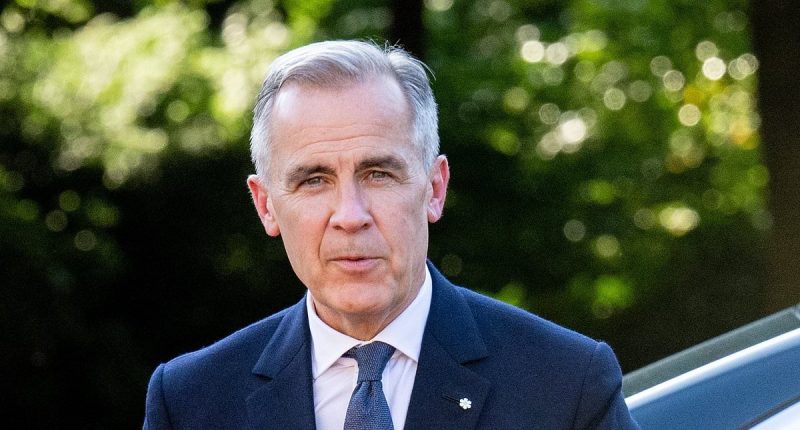Share this @internewscast.com

Canada caved to President Donald Trump and scrapped its digital services tax targeting U.S. technology firms just hours before it was due to take effect on Monday, paving the way for the resumption of tariff talks. Trump, in a shock announcement on Friday, announced he was suspending trade talks with America’s neighbor to the north over the tax.

The pressure campaign worked, handing the president a trade victory. Canadian Prime Minister Mark Carney and Trump spoke on Sunday and agreed to resume trade negotiations. Their goal is to have a deal by July 21, Canada’s finance ministry said in a statement.

In the meantime, Ottawa said it would pause collections on the 3% tax that would hit major American companies like Amazon, Google and Facebook . Additionally Canadian leaders will introduce legislation to rescind the tax ‘in anticipation of a mutually beneficial comprehensive trade arrangement with the United States,’ Canada’s government said.

The U.S. stock market responded well to the news, starting off Monday on an uptick. ‘Thank you Canada for removing your Digital Services Tax which was intended to stifle American innovation and would have been a deal breaker for any trade deal with America,’ American Commerce Secretary Howard Lutnick said in a post on X.

Canada’s tax would have seen companies like Amazon, Google, Meta, Uber and Airbnb put a 3% levy on revenue from Canadian users. It would have applied retroactively, leaving U.S. companies with a $2 billion bill due at the end of the month.

Trump was angry about it, calling it ‘a direct and blatant attack on our country.’ The president told reporters on Friday that ‘Canada has been a very difficult country to deal with over the years.’

But he expressed confidence Ottawa would stand down saying, ‘we have all the cards. We have all – every single one.’ ‘We do a lot of business with Canada, but relatively little they do most of their businesses with us,’ he added. ‘Economically we have such power over Canada, I’d rather not use it.’

The trade talks are more crucial for Canada as its economy depends heavily on exports to the United States. ‘In our negotiations on a new economic and security relationship between Canada and the United States, Canada’s new government will always be guided by the overall contribution of any possible agreement to the best interests of Canadian workers and businesses,’ Carney said in a statement.

Canada and the U.S. have been discussing easing the 25% tariff Trump imposed on most goods from Canada, over fentanyl trafficking and migration issues at the border. Additionally, Canada faces faces 50% duties on steel and aluminum exports to the U.S.

Canada is the second-largest U.S. trading partner after Mexico, and the largest buyer of U.S. exports. It bought $349.4 billion of U.S. goods last year and exported $412.7 billion to the U.S., according to U.S. Census Bureau data.






